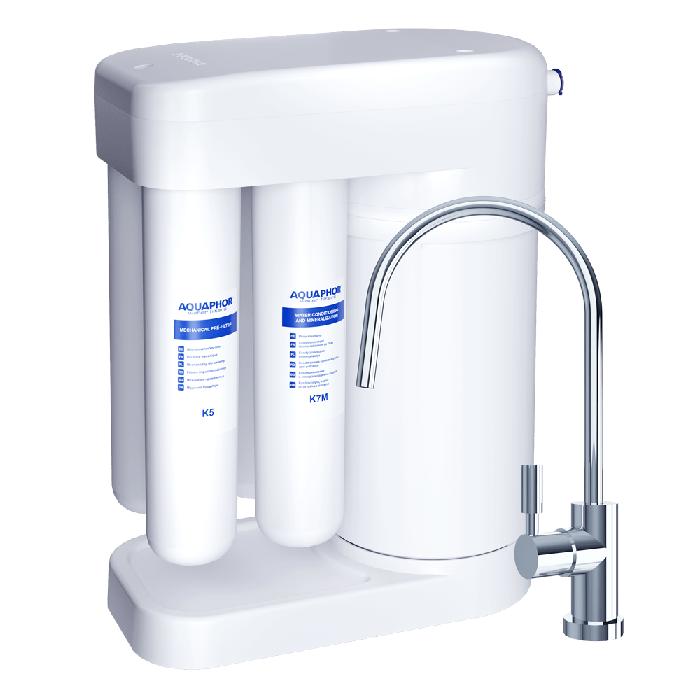 RO-101S
RO-101S
A versatile reverse osmosis system that relieves your water from contaminants and enriches it with healthy minerals.
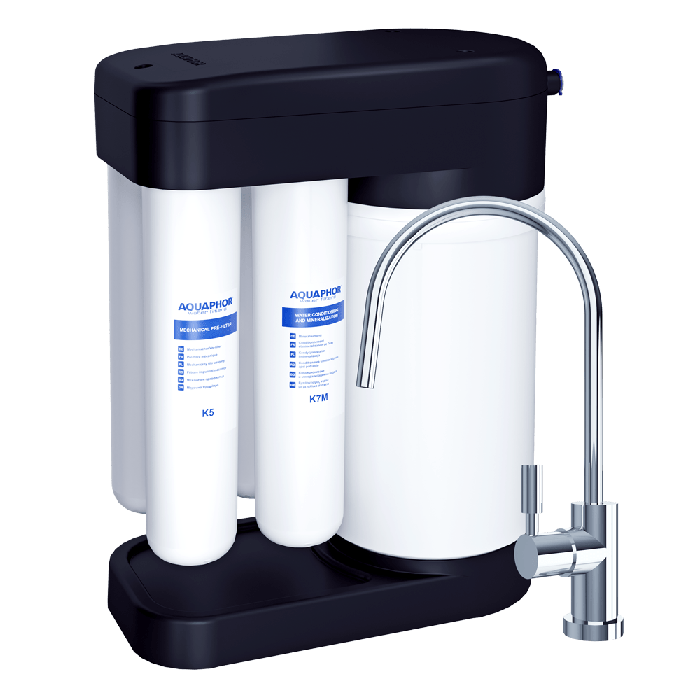 RO-102S
RO-102S
A versatile reverse osmosis system that relieves your water from contaminants and enriches it with healthy minerals.
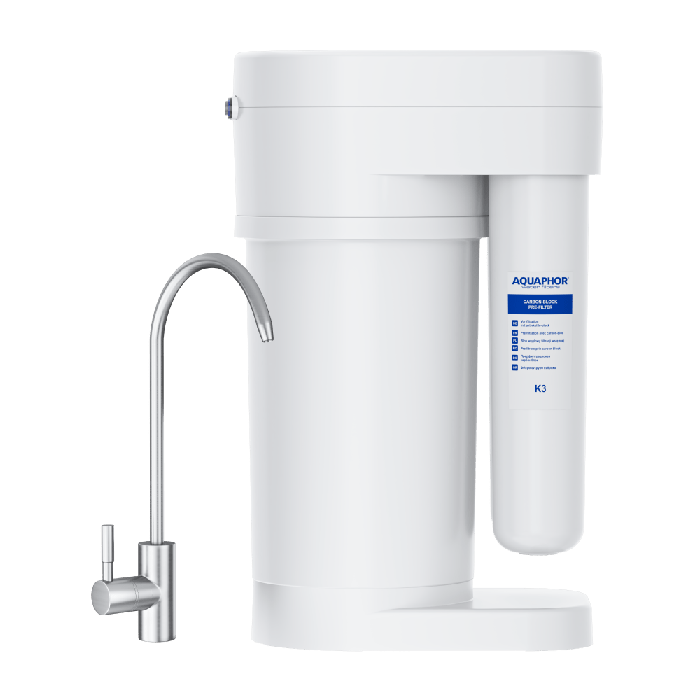 RO-70S
RO-70S
A compact reverse osmosis system with a 5 L tank featuring integrated in-tank mineralization, delivering up to 190 L of safe, great-tasting water per day even at low pressure.
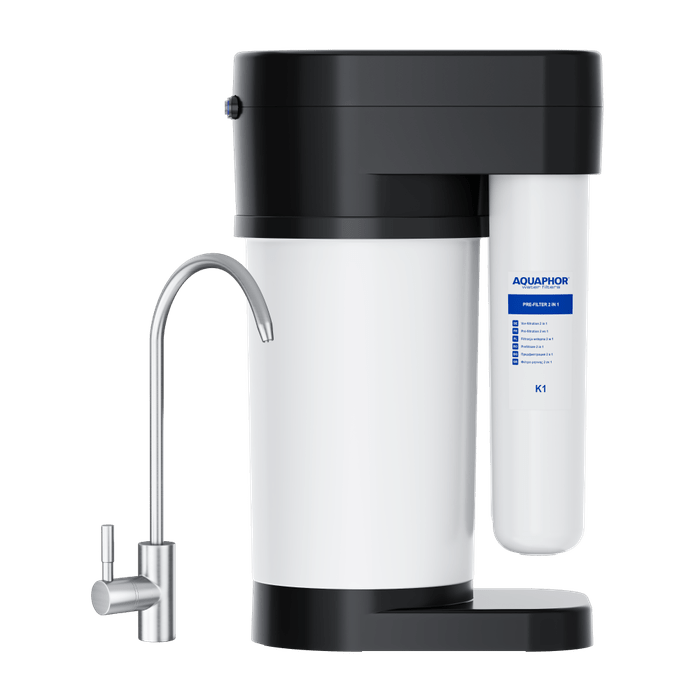 RO-70S EU
RO-70S EU
A high-capacity reverse osmosis system with a 2-in-1 dual-zone prefilter and integrated mineralization, providing up to 380 L of great-tasting, ultra-pure water per day for higher household demand.
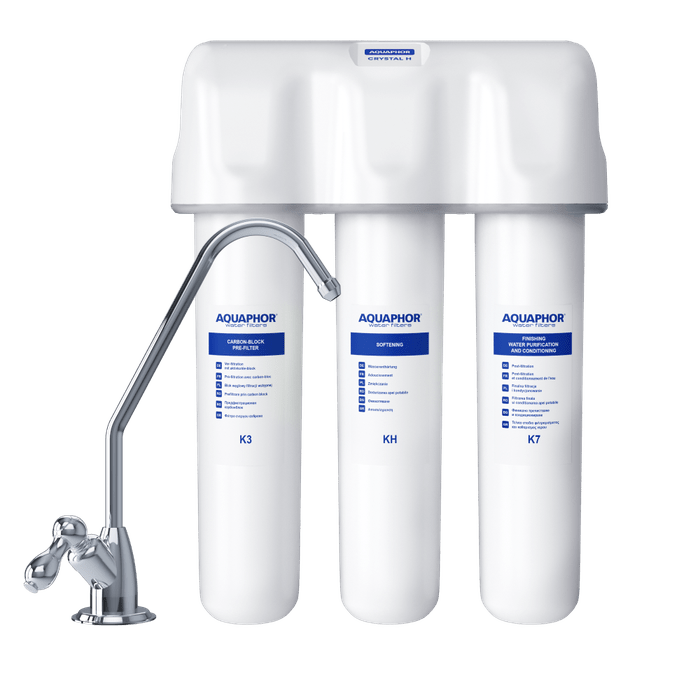 Crystal H
Crystal H
Universal carbon block filter and special ion-exchange fiber that deeply purifies and softens moderately hard water
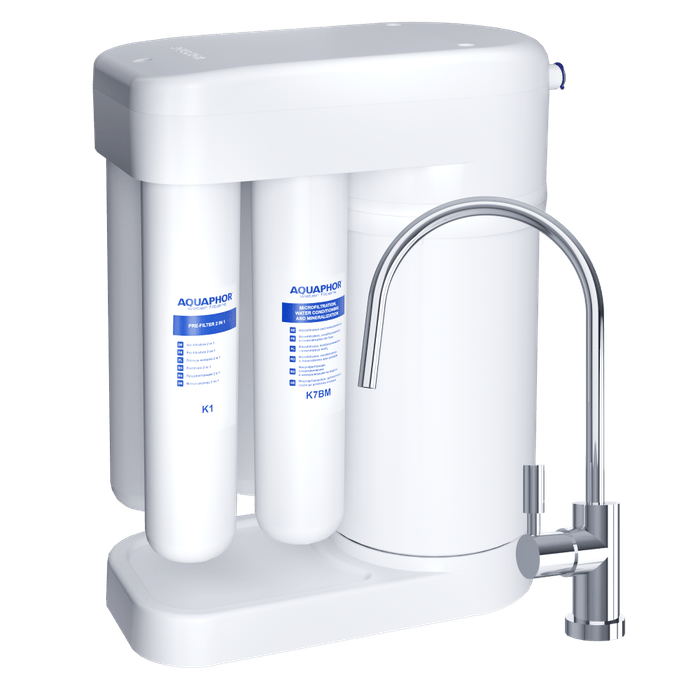 RO-101S EU
RO-101S EU
Compact, productive and water-efficient RO system with extra antibacterial postfiltration.
Hard water means water with a high content of calcium and magnesium salts (also called “hardness salts”). It’s quite easy to understand that your water is hard:
If anything from the list is true for you, it signals the need for a softening filter.
Water hardness can lead to some serious consequences:
There are two ways to soften water at home: reverse osmosis filtration or ion exchange.
Hardness salts are retained by a special membrane and then washed off into the drain along with harmful impurities. The membrane cuts off even nitrates, pesticides, and viruses that cannot be removed by other filtration technologies. The mineralizer in reverse osmosis filters (in AQUAPHOR filters we use the natural mineral dolomite) returns a small amount of Ca and Mg, which is also good for the usual pleasant taste of water.
Hard water treatment occurs due to a special material (ion exchanger) that catches calcium and magnesium ions with its surface. In exchange for each of these ions it gives up two sodium ions, neutralizing water hardness. In filters with ion exchange resin, no mineralizer is needed.
Depending on the type of premises, the quality of incoming water and the intensity of its consumption, several options should be considered. The price depends on the filtration system type and the water treatment volumes.
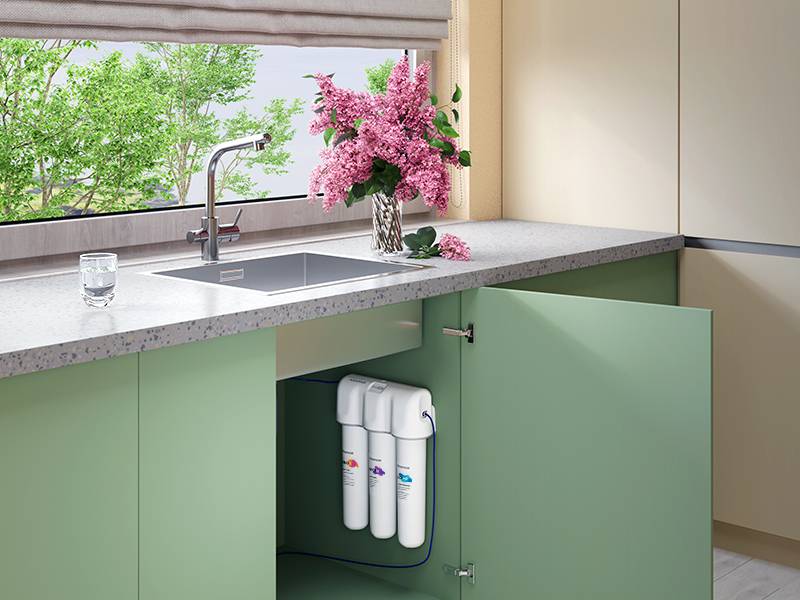
If the water is not too hard (<120 ppm), you can use the softening adsorption systems. AQUAPHOR softening filters are marked with the letter “H”: for example, ECO H Pro.
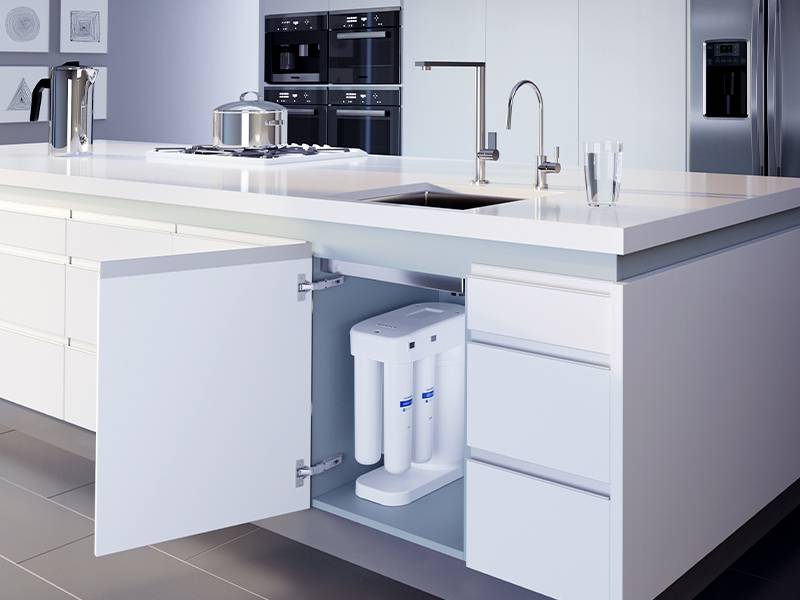
If you doubt the characteristics of your water or know for sure that it is too hard, choose a reverse osmosis filter. RO water purification is of the highest quality, and hardness salts content will be dramatically reduced.
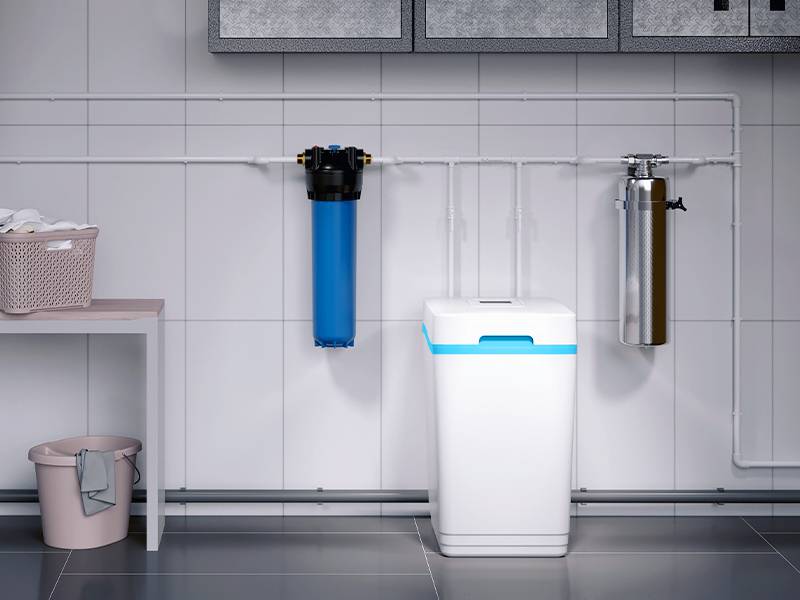
If you want to protect the condition of your skin and hair, as well as prevent possible allergies and eczema in infants and children, a whole-house softener is the right choice for you. Washing and taking a bath or shower in soft water is healthier and much more pleasant. In addition, buying a softening system helps to protect all kinds of household appliances.